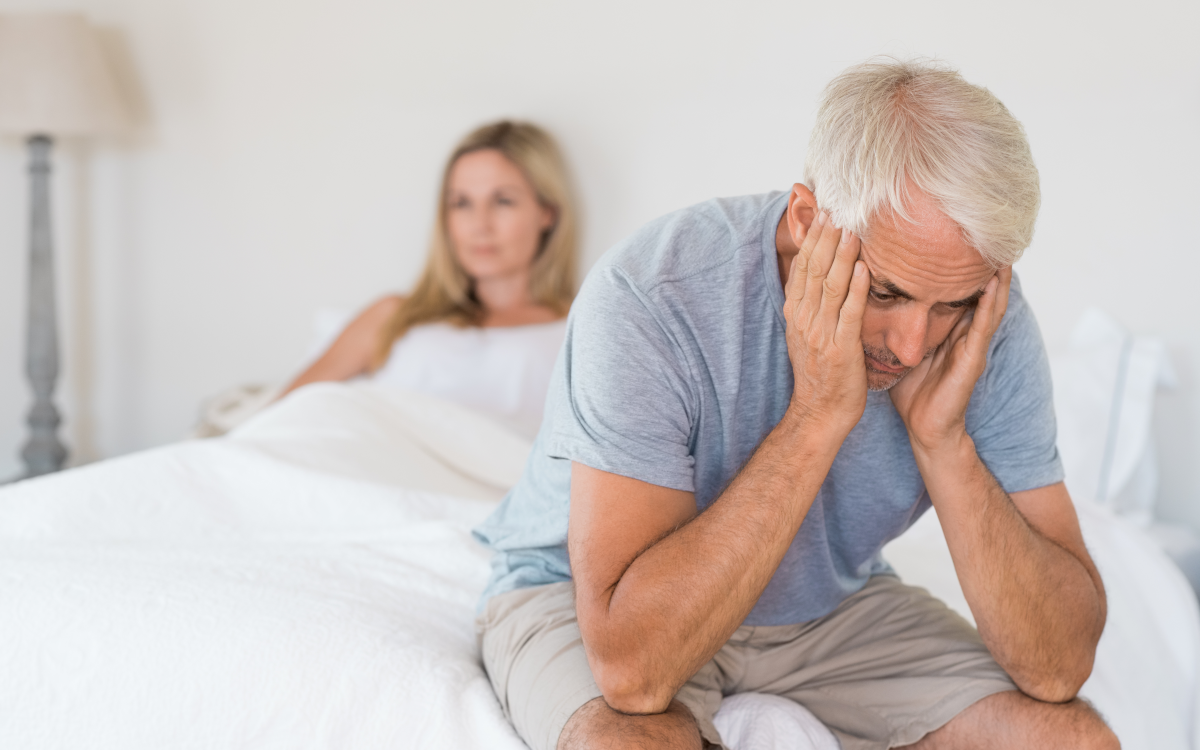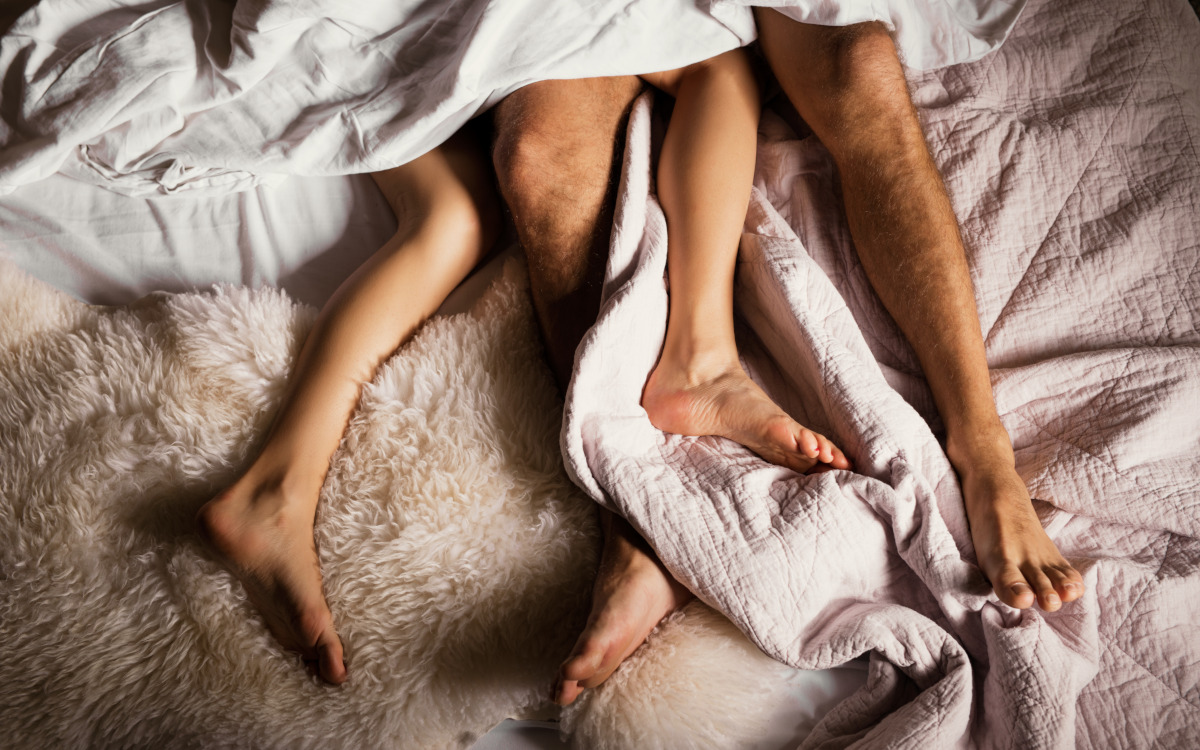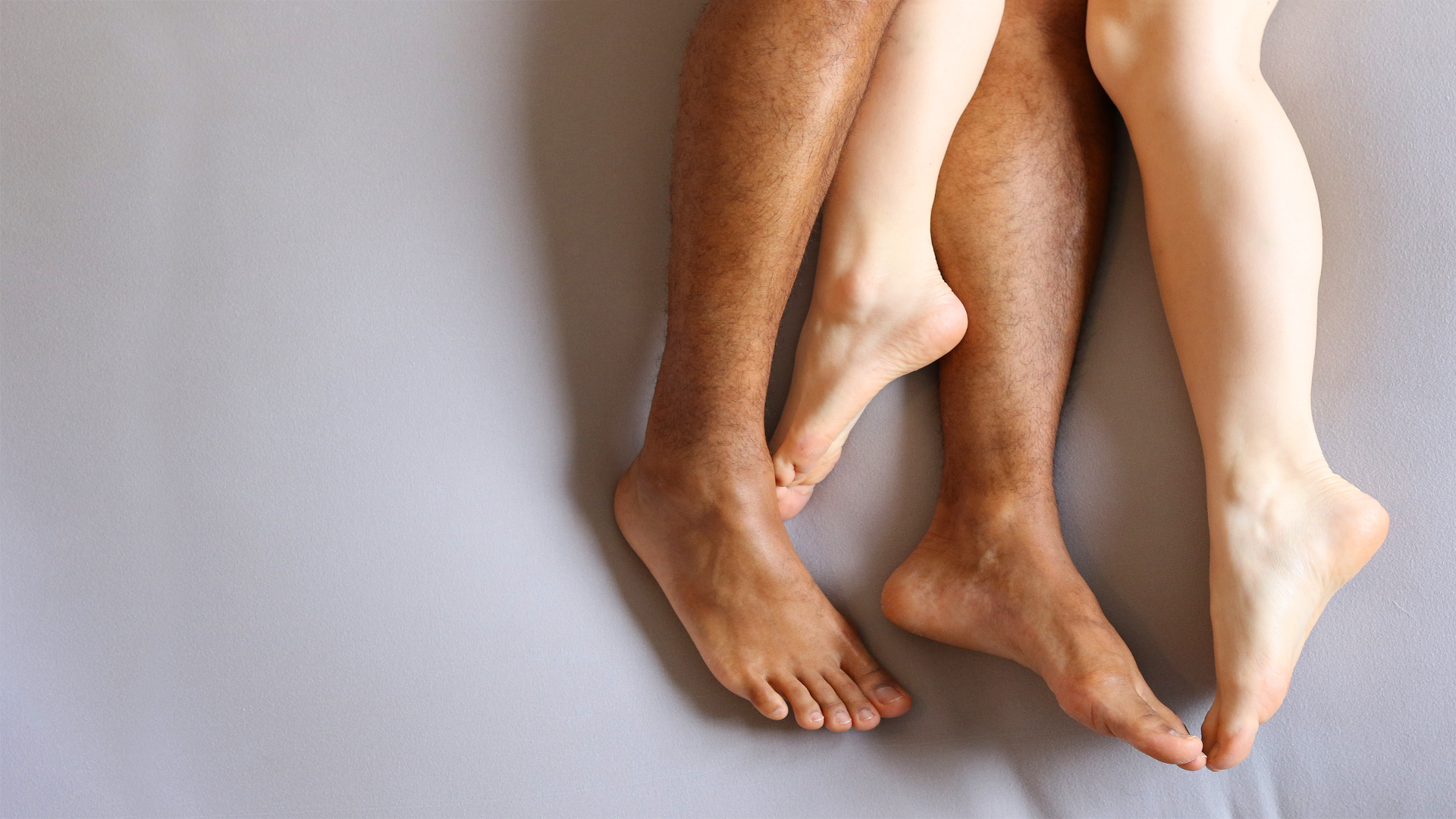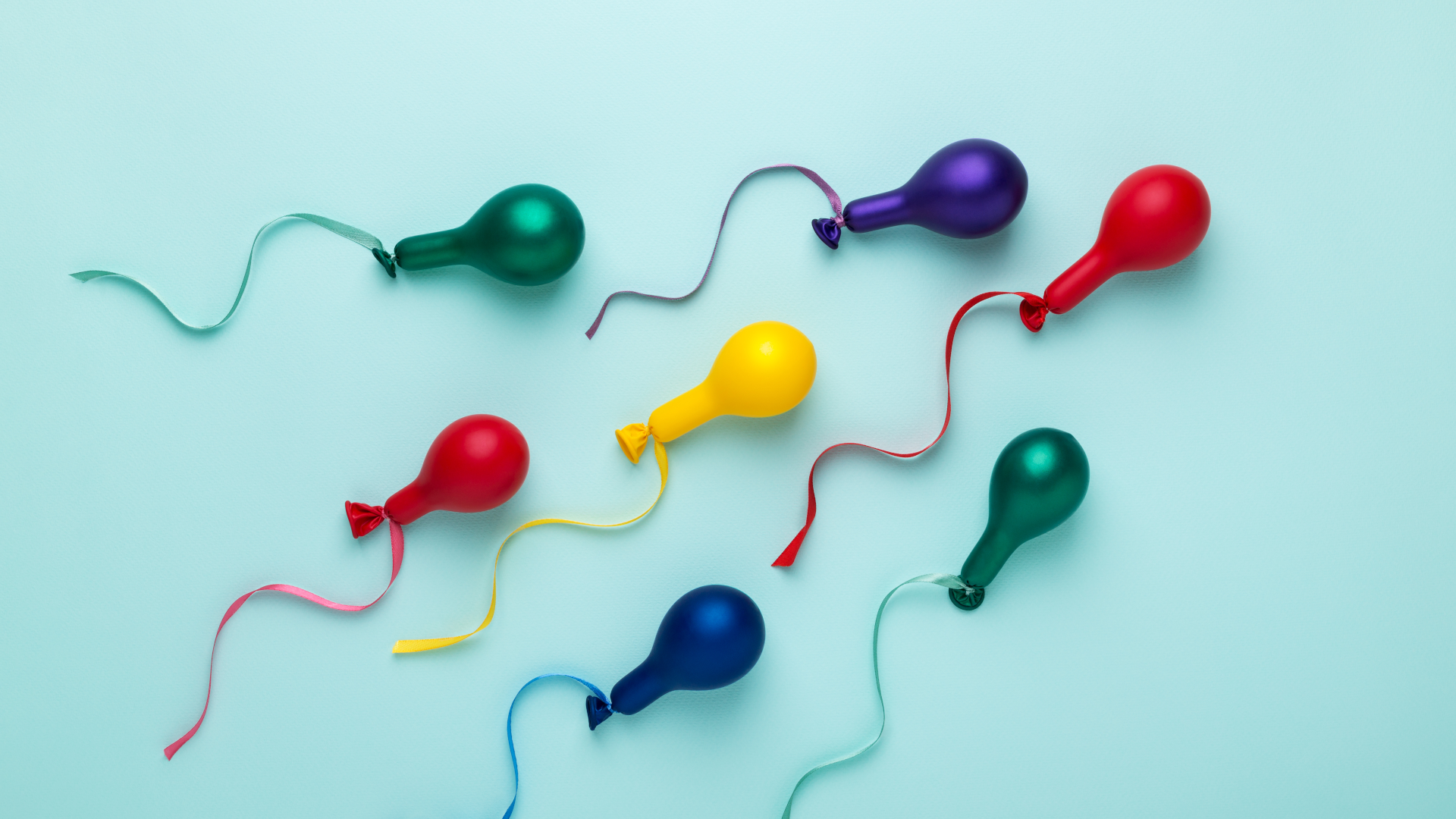Supercharge your day |
Sexual problems like low libido can feel like an embarrassing topic to talk about. But you’ll find absolutely no shame or judgement to be here.
An important thing to realise is that it’s not just older men who experience decreased sex drive, either—it can happen to anyone, at any time, and for any number of reasons.
One of the biggest reasons concerns sex hormones, with testosterone being a particularly strong factor, as a common symptom of a low testosterone level is loss of libido.
But the good news is that if that’s the case, you can reverse that decreased libido by raising your testosterone levels back up to healthy levels.
And we’ll show you how to do just that. So let’s see what causes low sex drive, what happens when low libido develops, and how to overcome persistently low libido by boosting your testosterone.
What is libido and why does it matter?
Let’s start with a quick definition. When we’re talking about libido, we’re referring to your sex drive or sexual desire.
Despite an interest in sex being such a simple and core part of adult life, it’s actually influenced by a complex interplay of hormones and neurotransmitters. These include testosterone, dopamine, serotonin, and glutamate.
Testosterone plays a particularly central role, as it’s the main male sex hormone that is produced in your gonads and adrenal glands—so it has a big say in your levels of sexual activity.
The influence of libido extends beyond just sex drive itself, though. Your quality of life and intimate relationships can also be massively affected by libido levels.

A healthy libido can contribute to a satisfying sexual relationship with your partner as well as improve your overall wellbeing and self-confidence. It can also be a crucial element for enhancing intimacy and emotional connection in relationships.
On the other hand, sexual dysfunction as a result of low libido can lead to frustration, dissatisfaction, and strain in otherwise healthy relationships.
It may also cause feelings of inadequacy, low self-esteem, and distress—not just for men themselves, but for their partners, too.
It's important to note here that your libido can naturally fluctuate over time, and may occasionally decrease in the short term due to factors like stress or fatigue.
Libido levels will also vary from person to person and can be influenced by multiple factors, including age, overall health, stress levels, medications, and other lifestyle factors affecting sexual health.
So, let’s take a look at some specific examples of things that can impact not just your sex drive, but your overall hormone levels, too.
Common causes of low libido in men
Low libido can occur for a variety of reasons. Some will be fleeting, some might be longer lasting. Either way, here are some of the potential underlying causes of reduced sex drive.
Hormonal causes
Hormones are a very common reason for lower libido. There’s a constant and delicate hormonal balancing act going on within your body. So if this is thrown off course in any of the following ways, it can lead to numerous health issues—including low sex drive.
Testosterone deficiency

Testosterone is the primary male sex hormone responsible for regulating libido. So low levels of testosterone—a condition known as hypogonadism—can significantly impact your sexual desire.
Men’s testosterone levels will naturally decline with age, which can often decrease libido too. Certain medical conditions, such as testicular disorders, pituitary disorders, or chronic illness, can also lead to low testosterone levels.
Thyroid disorders
Your thyroid hormones also play a crucial role in maintaining a healthy libido.
Both an underactive thyroid (hypothyroidism) and an overactive thyroid (hyperthyroidism) can disrupt that delicate hormonal balance and lead to decreased libido.
Prolactin imbalance
Excessive production of the hormone prolactin, known as hyperprolactinemia, can also interfere with normal testosterone production and lower libido. This condition can be caused by pituitary gland tumours, medications, or other factors.
Cortisol imbalance
Chronic stress can cause an overproduction of cortisol, the stress hormone. These elevated cortisol levels can then suppress testosterone production and affect libido.
Medications and steroids
Certain medications, such as antidepressants, antihypertensives, and opioids, can cause potential side effects that decrease libido.
Likewise, anabolic steroids used for bodybuilding or performance enhancement can also disrupt natural hormone production and lead to low libido.
Psychological and emotional factors

Psychological and emotional factors can also have a significant impact on libido levels. These include…
- Stress
- Anxiety and depression
- Negative body image or self-esteem
- Relationship issues
- Performance anxiety
- Trauma and past experiences
- Poor work-life balance
Read: Lifestyle habits that affect your hormones: Your essential guide
Physical health issues
Along with mental health and psychological life stressors, there are also links between your physical health and libido. These include…
- Chronic illnesses: Such as diabetes, cardiovascular disease, chronic pain, neurological disorders, and other things that impact energy levels, circulation, nerve function, and hormonal balance.
- Medications: Including antidepressants, antihypertensives, corticosteroids, and chemotherapy drugs.
- Chronic fatigue
- Obesity
- Erectile dysfunction
- Sleep disorders: E.g. sleep apnea or insomnia.
- Chronic pain: Such as persistent pain related to injury or arthritis.
Lifestyle factors
It pays to maintain good habits and create healthy routines in your daily life, as the following can all have an impact on hormones and libido…
- Poor diet and nutrition: Such as malnutrition, overeating, or nutritional deficiencies.
- Lack of exercise
- Inadequate or poor sleep quality
- Substance abuse: Such as excessive use of alcohol, tobacco, or illicit drugs.
- Lack of self-care: E.g. No self-compassion, outlet for stress, or engaging hobbies and interests.
- Exposure to chemicals: Like oestrogen-raising toxins such as Bisphenol A (BPA).
Signs and symptoms of low testosterone

Now that we’ve explored the potential causes of low libido, let’s look at some common symptoms that could suggest a hormonal issue like low testosterone is at play…
- Reduced sex drive
- Erectile dysfunction
- Fatigue and decreased energy or motivation
- Reduced strength and muscle mass
- Decreased bone density
- Increased body fat (particularly around the chest or abdominal area)
- Depression or frequent mood changes
- Poor concentration or lack of focus
Any and all of these symptoms could indicate low testosterone levels, but they can also be a result of various other conditions as well. So a medical evaluation may well be necessary for an accurate diagnosis.
If you are experiencing any of the symptoms above, we recommend that you consult with a healthcare professional for proper evaluation and guidance.
Approaches to managing and improving libido
It’s all well and good knowing what could be causing low libido and what the signs of reduced testosterone levels are, but you’re probably wondering what you can actually do to reverse the decline.
Fortunately, there’s plenty that you can do to take your hormone levels and libido back into your own hands (so to speak):
-
Medical evaluation: If you’re experiencing persistent changes in libido, consult with your healthcare professional for a thorough evaluation. They’ll be able to assess any underlying medical conditions, hormonal imbalances, or medications that may be affecting your libido. Depending on the findings, appropriate treatment options can then be discussed.
-
Testosterone replacement therapy (TRT): In cases of diagnosed hormonal imbalances, such as low testosterone, hormone replacement therapy (HRT) may be recommended. This involves the administration of synthetic testosterone to restore proper hormone levels and improve libido.
-
Medications: Certain medications, such as phosphodiesterase type 5 inhibitors (PDE5) like Viagra or Cialis, could also be prescribed to help with erectile dysfunction and improve sexual function and libido.
-
Lifestyle modifications: Engaging in regular physical exercise and eating a balanced diet that includes fruits, vegetables, lean proteins, whole grains, and healthy fats can support proper hormone production and overall vitality, which can positively affect libido.
-
Stress management: Stress management techniques such as meditation, deep breathing exercises, yoga, or engaging in hobbies can reduce stress and enhance relaxation for improved mood, sex drive, and hormone production.
-
Sleep: Prioritise healthy sleep and create a calming sleep environment to ensure regular sleep patterns. Getting enough restful sleep each night can positively impact your mood, energy levels, and libido.
-
Communicate with your partner: Building and maintaining a strong emotional connection and open communication with your partner can help create intimacy and improve libido. Discussing your concerns, desires, and expectations can contribute to a healthy sexual relationship.
-
Seek psychological support: If it’s psychological factors that you feel are affecting your libido, such as stress, anxiety, or depression, professional counselling or therapy can help you address and manage these issues.
-
Reduce alcohol and drug use: Limiting or moderating the use of these substances can support better sexual function, not to mention your overall health and well-being.
-
Enhance emotional and sensual connection: Engage in activities that create extra enjoyment and trust between you and your partner. Things like spending quality time together, expressing affection, and exploring different forms of intimacy, can all lead to a better and healthier sex life.
- Testosterone supplementation: Raising your testosterone levels through natural supplement ingredients is a simple and effective way to boost your libido and get you back to your very best in the bedroom.
How to reverse and overcome lowered libido

We mentioned this at the beginning, but we think it’s worth repeating… Loss of sex drive is nothing to be ashamed of—and it does not make you any less of a man!
There are lots of things that can affect sex drive and lead to fewer sexual thoughts, reduce sexual desires, and impact your interest in sex.
Normal sexual desire will also naturally fluctuate during your life, so don’t be too alarmed if and when this happens to you.
Get a boost
Making those healthy lifestyle changes, taking a testosterone-boosting supplement, and seeking psychological support can all go a long way to getting you back on track and resuming a healthy sex life.
But if problems persist over a prolonged period of time, make sure to contact your healthcare provider to explore other treatment options.
Low sexual desire doesn’t have to be something you suffer through alone and is not something to be embarrassed about.
Just take the necessary steps and ask for help if needed. Then you can be well on your way to kickstarting your libido and feeling like a teenager again.
We wish you the very best of luck on your journey.





